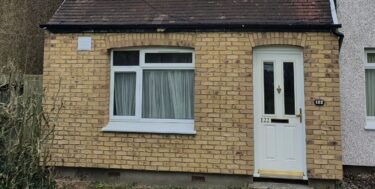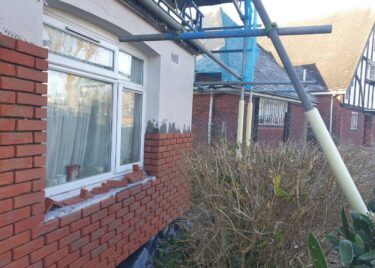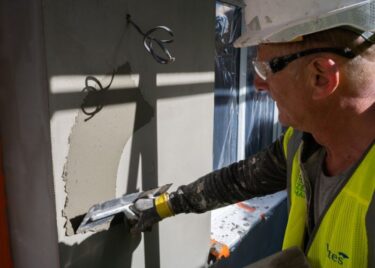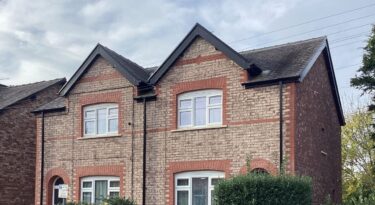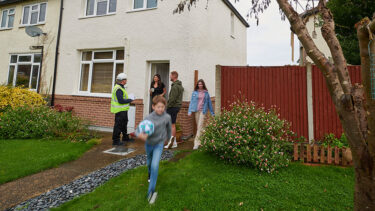Ensuring respectful resident engagement
As with all occupied refurbishment projects, communication with residents is the cornerstone of successful housing retrofit projects. For this project, our team included a full time Resident Liaison Officer (RLO), whose role was to help ensure that misconceptions about energy efficiency measures were addressed and that residents were fully aware of the works being undertaken, what they would involve and the benefits they would bring. As a result of this regular contact, residents now understand how the technology works, which will ensure measures continue to have a positive impact on efficiency long after the project has completed.
Where resident liaison proved challenging, we established a non-access strategy for properties. After three attempts had been unsuccessful in engaging residents, this was flagged to the council and a reserve property list was established to maximise the funding.
Overcoming challenges
Key to the success of this project has been our ability to solve problems and apply quick thinking to overcome unforeseen challenges in the retrofit work, such as demands on the supply chain. We developed a risk register, allowing for clear ownership of key risks to ensure appropriate management was put in place. This included regular review meetings with system suppliers and retrofit co-ordinators to discuss any design or supply issues so the team could forward plan material orders to prevent project delays.
Working within PAS20:35 compliance is a relatively new process for the industry and adaptation and understanding of the prescribed requirements was key from the outset for the Enfield LAD 1B project. Critical to this project was the appointment of PAS 2035 consultant partners and PAS 2030 accredited contractors, of whom all were fully engaged in the risk review meeting
During the project, it was found that EWI installation was not fully possible where gas meters were in place. We therefore sourced an innovative Aerogel product that could be used in conjunction with the EWI system and would achieve the required insulation.
Lessons learned
Social housing retrofit is a journey for all and with policy, funding and compliance evolving at pace, there are continued opportunities to develop best practice and to learn lessons.
A key lesson from Enfield has been the involvement of all project stakeholders as early as possible in the project, including the planning authority, residents, and supply chain partners. We found that the more transparent the process, the more efficiently the project could be delivered and as such, we are taking forward a number of best practice initiatives to future retrofit projects, including:
- Resident engagement: providing residents with case studies and before and after photographs of energy efficiency measures to support their understanding of the technology
- Scaffolding: installing permanent wall plugs for future scaffolding to protect the EWI’s warranty
- PAS 2035 compliance ensuring compliance by constantly reviewing the evolving PAS 2035 criteria to ensure the project is in-line with funding requirements.
